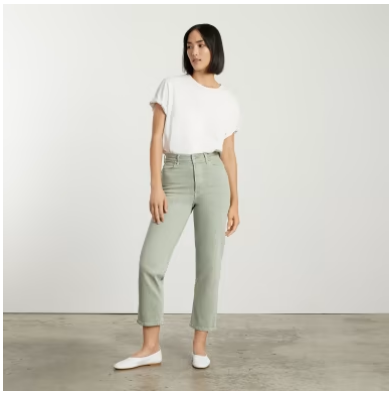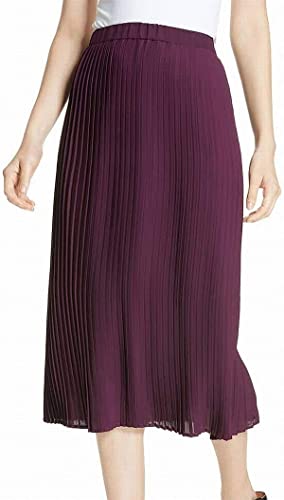5 Eco-Friendly Clothing Brands You’ve Probably Never Heard Of
If you want to buy sustainable, eco-friendly clothing, the options can be overwhelming. There are so many brands out there that it’s hard to know where to start! Luckily for you, I’ve done all the research and narrowed it down to five of my favourite ethical fashion brands: Boody, Thought Clothing, People Tree, Everlane, and Eileen Fisher.
Why eco-friendly clothing matters?
The clothing industry is one of the most significant contributors to global pollution and climate change. It accounts for more than 20% of greenhouse gas emissions, which is near twice as much as all forms of transportation combined.
Eco-friendly clothing is more than just a trend. It can help reduce our carbon footprint and be beneficial for all those involved in the process of making clothes, from designers to fabricators to wearers.
So what does eco-friendly mean? Many brands have adopted this term as part of their brand identity. However, it doesn’t always mean they are environmentally friendly or sustainable in practice. It just means they claim to be so!
To determine whether a brand’s products qualify as “eco,” look at how they’ve been made. Does the company use recycled fabrics? Do they avoid certain chemicals or processes? Do they support fair labour practices?
If you’re looking for clothing that’s kind to our environment and the people who make it, check out these brands.
Boody
Boody is a Canadian company that makes underwear and other clothing. They use organic cotton, recycled polyester, and bamboo to make their products. All manufacturing is done in Canada, which keeps its carbon footprint small.
Boody has been around since 2004 and is based in Vancouver, BC. The founders wanted to create a high-quality product that was also environmentally friendly while still being affordable for everyone. Their goal is to have no waste by 2020!
They have a fun story about how they got started: “The idea came from one of the co-founders who was working at a youth centre as an after-school program coordinator where she noticed many children coming in with dirty clothes or wearing ill-fitting ones because there wasn’t enough funding for new outfits every year.”

Thought Clothing
Thought Clothing is a clothing company with a commitment to sustainable, ethical, and fair trade practices. The company was founded by Willeah Clontz in 2017 and has expanded to include a wide range of clothing from shirts to dresses to pants. Thought Clothing is an eco-friendly brand because of its commitment to sustainability. They use organic cotton, recycled polyester, and repurposed fabric in their garments and recycled plastic bottles for their buttons.
Thought Clothing is also a socially responsible brand because of its commitment to fair trade practices. The company works with artisans in countries such as India, Sri Lanka, Peru, and Bolivia to create high-quality products that are ethically sourced. The company also has a unique mission of giving back and empowering women in developing countries by employing them.

People Tree
People Tree is a clothing company specializing in fair trade, and sustainable fashion. They are the first brand to offer sustainably-made clothing that is also vegan. This means all garments uses organic cotton and dyeing processes. They don’t use any animal products like wool or silk.
Founded in 2001 by two friends who were both concerned with environmental issues and committed to creating ethical products. People Tree has grown into one of the most well-known eco-fashion companies in the world. The brand offers an extensive range of items from underwear to outerwear, including pieces made from recycled materials.
Their goal is simply “to make a positive difference in people’s lives,” which they achieve by providing fair working conditions for their employees as well as environmentally friendly fabrics and production processes that won’t harm our planet’s resources.

Everlane
Everlane is a clothing brand that sells high-quality basics at affordable prices. The company uses sophisticated sourcing methods, which allows them to pay its manufacturers a fair wage. This allows workers to unionize, as well as ensure that the factories they use are environmentally friendly. These factors together make Everlane’s products one of the most sustainable and ethical options available today.
Everlane has also taken steps to reduce the environmental impact of its products by eliminating excess packaging, shipping with reusable containers when possible, and making sure all factories they work with use sustainable fabrics.

Eileen Fisher
Eileen Fisher is an American fashion designer and the founder of Eileen Fisher, Inc., a privately held company that produces clothing for women. She’s also a leader in sustainable fashion and has been pioneering the sustainable fashion movement since 1986.
Eileen Fisher’s clothing is designed to be classic, sophisticated, and timeless. The company uses natural fibres such as cotton and wool, as well as recycled materials like post-consumer polyester and PET bottles. Their products are made in facilities that use renewable energy sources or have been certified by the U.S. Green Building Council LEED standard for environmentally responsible design, construction, and operation of buildings.

Pros and Cons of Eco-Friendly Clothing
Pros:
- Eco-friendly clothing is a great way to reduce your carbon footprint.
- It’s good for you, the environment, and the economy.
- It’s better for the environment than conventional clothing.
- It lasts longer than regular clothing.
Cons:
- Not all eco-friendly clothing is created equal. Some may be just as bad as conventional cotton or polyester products in terms of their impact on the environment. Be sure to do your research before you buy!
- The price tag is often a little higher.
- It can be harder to find eco-friendly clothing in your local stores.
How to Make Sure You’re Buying Eco-Friendly Clothing
Check out labels like organic cotton or recycled polyester. These will give you an idea that it uses sustainable materials that won’t harm our planet when they end up in landfills. Look into which companies have fair trade certifications so workers have been paid fairly in factories around the world!
Not all ethical brands are more expensive than others.
If you’re looking for an ethical brand that fits your budget, we have good news: there are plenty of options out there! Some ethical brands are more expensive than others, while still others are cheaper than mainstream brands. We hear you on this issue—it can be difficult to find good quality clothing that doesn’t cost a fortune.
And if you’re trying to stay true to your values yet remain on a budget, it can be even harder still. But fear not: the following list includes some eco-friendly clothing brands at all different price points and styles that will help you get through any situation!
Conclusion
There are many ways to make a difference. We’ve talked about some of the top eco-friendly brands, but there are other companies out there that you can trust and support with your purchases as well. Feel free to explore the marketplace for other eco-friendly clothing brands and let us hear from you in the comment section.
If you’re looking for some shoes to pair with these brands, you might want to check out this post.
- Fashion Forward: Women’s Eco Friendly Dresses for Every Season
- Innovative Eco Friendly Materials for Sustainable Product Design
- Transform Your Life with These Eco Friendly Eco Living Tips
- Essential Eco Friendly Green Holiday Tips for a Sustainable Celebration
- Fun and Safe Eco Friendly Biodegradable Beach Toys for Kids
- Fashion Forward: Women’s Eco Friendly Dresses for Every Season
- Innovative Eco Friendly Materials for Sustainable Product Design
- Transform Your Life with These Eco Friendly Eco Living Tips
- Essential Eco Friendly Green Holiday Tips for a Sustainable Celebration
- Fun and Safe Eco Friendly Biodegradable Beach Toys for Kids